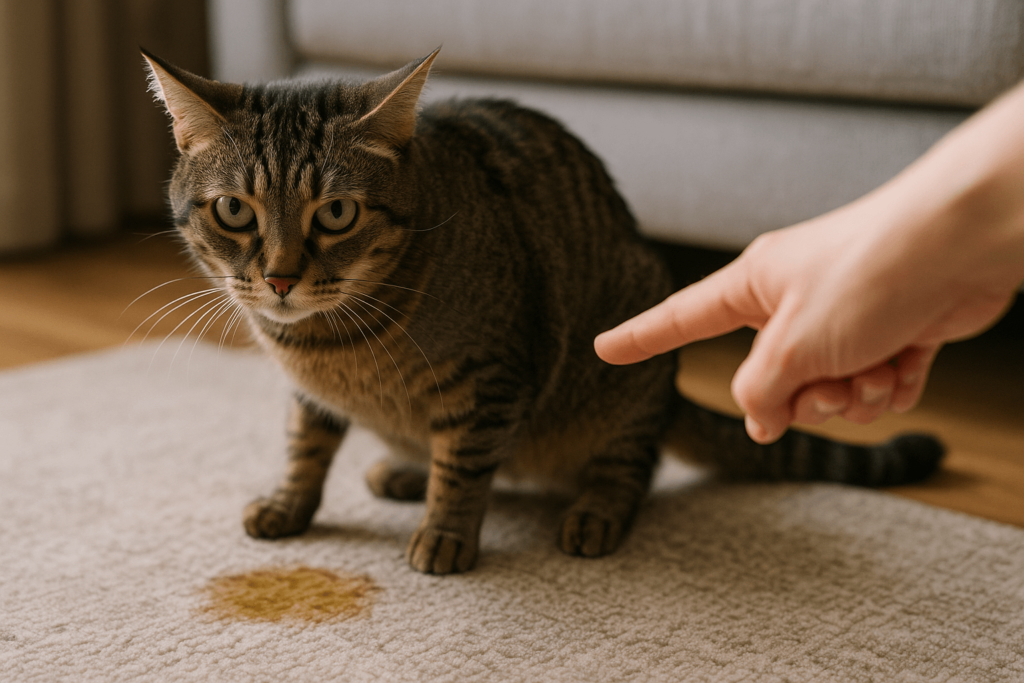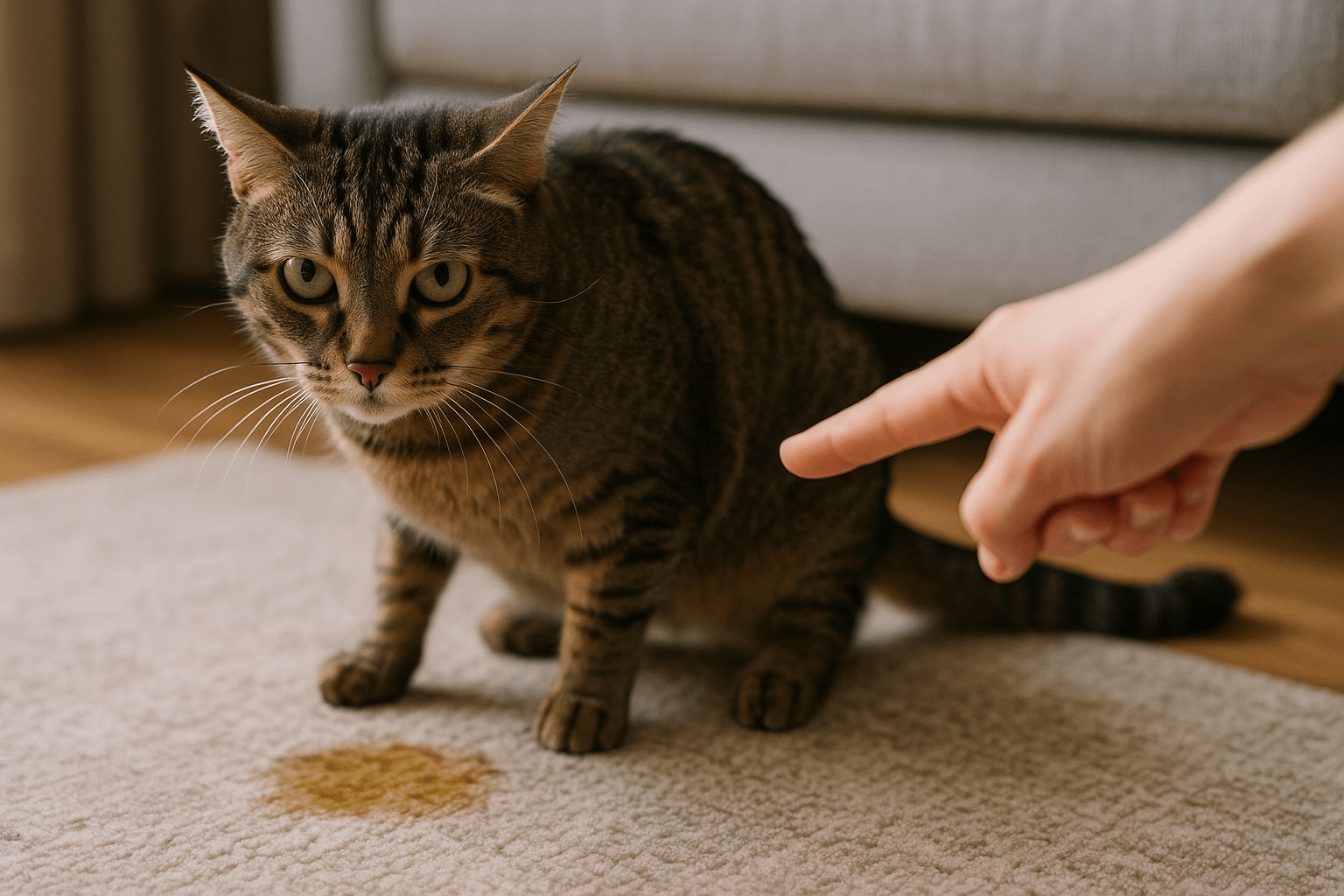How to Get Your Cat to Stop Peeing on Things
Dealing with a cat that pees outside the litter box can be frustrating and stressful for both you and your feline companion. Whether it’s on furniture, carpets, or clothing, inappropriate urination is often a sign of an underlying issue rather than deliberate mischief. Understanding the root causes and implementing effective solutions can help restore harmony to your home while ensuring your cat feels safe and comfortable. In this guide, we’ll explore expert tips and strategies to address this common problem and strengthen your bond with your furry friend.
Common Reasons Cats Pee Outside the Litter Box
Before addressing the behavior, it’s essential to identify why your cat might be peeing on things. These causes range from medical issues to environmental stressors.
Urinary Tract Infections (UTIs):
UTIs can cause discomfort during urination, leading cats to associate the litter box with pain and avoid it altogether.Stress or Anxiety:
Changes in the household, such as moving, new pets, or loud noises, can trigger stress-related behaviors like inappropriate urination.Dirty Litter Box:
Cats are naturally clean animals. A soiled or smelly litter box may discourage them from using it.Territorial Marking:
Unneutered cats, or even neutered ones feeling territorial, may spray urine to mark their space.Litter Preferences:
Some cats dislike certain types of litter, box designs, or locations, prompting them to find alternative spots.
Understanding these reasons is the first step toward resolving the issue and preventing future incidents.

Steps to Discourage Inappropriate Urination
Once you’ve identified potential causes, take proactive steps to redirect your cat’s behavior and encourage proper litter box use.
Clean Soiled Areas Thoroughly:
Use enzymatic cleaners to remove all traces of urine odor, as lingering scents can attract cats back to the same spot.Provide Multiple Litter Boxes:
The general rule is one litter box per cat, plus one extra. This ensures availability and reduces competition.Experiment with Different Litters:
Try various textures (clumping, non-clumping, silica) and scents to find what your cat prefers. Unscented options are often favored.Relocate the Litter Box:
Place the box in a quiet, accessible area away from food, water, and high-traffic zones to make it more appealing.Block Access to Problem Areas:
Temporarily restrict access to spots where your cat has been peeing using furniture, deterrent sprays, or motion-activated devices.
These steps create a supportive environment that encourages your cat to use the litter box consistently.
Check this guide 👉Does Cat Pee Kill Plants? Best 7 Expert Tips!
Check this guide 👉Cat Peeing Next to Litter Box: Best 7 Expert Tips!
Check this guide 👉Cat Pee Under Black Light: Best 7 Expert Tips!
Preventive Measures | Corrective Actions |
|---|---|
Keep litter boxes clean daily | Clean accidents immediately with enzyme cleaner |
Provide enough litter boxes for all cats | Address territorial marking with spaying/neutering |
Avoid sudden changes in routine | Consult a vet for possible medical issues |
Use calming pheromone diffusers | Reintroduce the litter box gradually if avoided |
Monitor for signs of stress or illness | Redirect behavior with positive reinforcement |
How to Reduce Stress-Related Urination
Stress is a common culprit behind inappropriate urination. By creating a calm and secure environment, you can help your cat feel more at ease.
Establish a Routine:
Cats thrive on predictability. Stick to consistent feeding, play, and cleaning schedules to minimize anxiety.Introduce New Changes Gradually:
Whether it’s a new pet, baby, or piece of furniture, allow your cat time to adjust by introducing changes slowly.Use Calming Products:
Pheromone diffusers like Feliway mimic natural feline scents, promoting relaxation and reducing stress-related behaviors.Create Safe Spaces:
Designate quiet areas where your cat can retreat when feeling overwhelmed, equipped with cozy bedding and familiar scents.Engage in Playtime:
Regular interactive play helps burn off excess energy and alleviates tension, reducing the likelihood of stress-related urination.
By prioritizing your cat’s emotional well-being, you can significantly reduce incidents of inappropriate peeing.
When to Seek Veterinary Help
If your efforts to stop your cat from peeing on things haven’t worked, it may be time to consult a veterinarian. Medical issues could be contributing to the problem.
Rule Out Underlying Conditions:
Conditions like kidney disease, diabetes, or bladder stones can cause frequent urination or accidents outside the litter box.Discuss Behavioral Therapy:
A vet may recommend behavioral counseling or medications to address anxiety-related urination.Perform Diagnostic Tests:
Bloodwork, urine analysis, or imaging can help identify hidden health problems requiring treatment.Explore Pain Management Options:
If your cat experiences pain during urination, pain relief medications may improve their willingness to use the litter box.Follow Up Regularly:
Ongoing monitoring ensures any treatments or adjustments are working effectively over time.
Veterinary guidance is crucial for ruling out serious health concerns and finding tailored solutions for your cat.
Signs Your Cat May Be Stressed
Inappropriate urination is often linked to stress, but recognizing the signs early can help you intervene before the behavior escalates.
Excessive Grooming:
Over-grooming can indicate anxiety or discomfort, potentially leading to skin irritation or hair loss.Hiding More Than Usual:
Cats may withdraw to secluded spots when feeling threatened or uneasy.Changes in Appetite:
Stress can cause decreased interest in food or sudden overeating.Aggression Toward People or Pets:
Sudden hostility may signal fear or frustration stemming from environmental changes.Increased Vocalization:
Excessive meowing or crying can reflect distress or attempts to communicate needs.
Identifying these signs allows you to address stress proactively and prevent further behavioral issues.
Alternative Solutions for Managing Urine Odors
Eliminating urine odors is critical to stopping repeat offenses. Here are some alternative methods to keep your home fresh and inviting.
Use Baking Soda and Vinegar:
Combine baking soda and vinegar to neutralize odors naturally without harsh chemicals.Try Oxygen-Based Cleaners:
These products break down organic compounds in urine, leaving no trace for your cat to detect.Invest in Air Purifiers:
HEPA filters remove airborne particles and odors, improving overall indoor air quality.Apply Citrus or Herbal Sprays:
Cats dislike citrus and herbal scents, which can deter them from returning to soiled areas.Wash Fabrics Frequently:
Launder bedding, rugs, and upholstery regularly to remove lingering smells that attract repeat accidents.
These techniques ensure your home remains odor-free and discourages future incidents.
Tips for Introducing a New Litter Box
Sometimes switching to a new litter box design can make all the difference. Follow these tips for a smooth transition.
Choose the Right Size:
Ensure the box is large enough for your cat to move comfortably, especially if they’re older or larger breeds.Opt for Low-Sided Boxes:
Senior cats or kittens may struggle with high edges, so consider low-sided designs for easier access.Test Open vs. Covered Boxes:
Some cats prefer open boxes for visibility, while others feel safer in enclosed spaces. Experiment to see what works best.Place the Box Strategically:
Position the box in a quiet corner where your cat won’t feel vulnerable or disturbed during use.Gradually Transition:
If replacing an old box, leave both options available initially to give your cat time to adapt.
A thoughtful approach to introducing a new litter box can encourage proper usage and reduce accidents.
Frequently Asked Questions About Cats Peeing on Things
Why does my cat pee on my bed?
Cats often target soft, familiar surfaces like beds due to stress, scent-marking, or dissatisfaction with the litter box.
Will neutering stop my cat from spraying?
Neutering can reduce or eliminate spraying in most cases, especially if done early in life.
Can I punish my cat for peeing outside the box?
Punishment can increase stress and worsen the behavior. Focus on positive reinforcement instead.
What should I do if my cat suddenly stops using the litter box?
Visit a vet immediately to rule out medical issues before addressing behavioral causes.
How long does it take to correct this behavior?
The timeline varies depending on the cause, but consistency and patience are key—improvements may take weeks or months.
Restoring Harmony Between You and Your Cat
Getting your cat to stop peeing on things requires understanding, patience, and a combination of preventive and corrective measures. By addressing potential triggers—whether medical, environmental, or behavioral—you can create a happier, healthier living space for both you and your feline companion. Remember, every cat is unique, and finding the right solution may take time. With love, persistence, and professional guidance when needed, you can overcome this challenge and strengthen the bond you share with your beloved pet.
Is Royal Canin Good Cat Food? Best 7 Expert Tips! Learn the truth about this brand & get vet-approved advice on feeding, ingredients, and tailored formulas.
Dwarf Cat Lifespan: Best 7 Expert Tips! Discover how to ensure a long, healthy, and happy life for your short-legged feline companion.
Blue Buffalo Cat Food: Best 7 Expert Tips! Discover how to choose the right formula, feeding strategies, and nutritional benefits for your feline friend.
Canned Pumpkin for Cat Diarrhea: Best 7 Expert Tips! Natural remedy to firm stools, soothe upset bellies, and support gut health safely.





